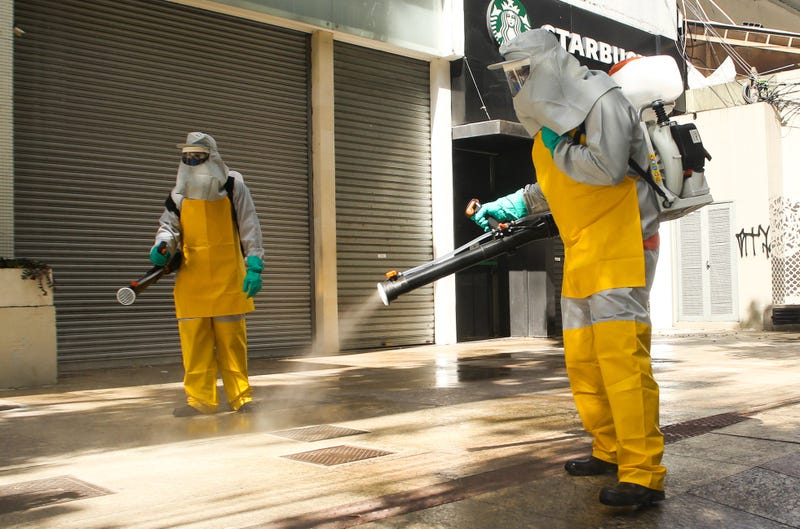
KYW Newsradio’s Medical Reports are sponsored by Independence Blue Cross.
KYW Newsradio medical editor Dr. Brian McDonough answers all of your coronavirus-related questions below.
Q: If it's a medical emergency other than coronavirus, is it safe to go to the hospital? Will you be treated for any emergency in that case?
A: We are starting to see patients come to the emergency room with problems that are the result of letting things go longer than they should, and not going to the doctor’s office or emergency room because of fears they might contract coronavirus. While we are trying to reduce the number of unnecessary visits in person for routine issues due to potential risks of exposure, the use of telehealth — even standard phone calls — as well as office and emergency room visits can be necessary and quite safe. It is important you never hesitate to call your doctor, make sure you take your prescribed medications, and if you have anything that you feel is an emergency, make sure you contact your physician.
Q: If the pandemic is over, will we be allowed to hug our families if we want?
A: The pandemic truly won’t be over in the traditional sense until one or more of three things happen: effective treatments are available, rapid and reliable testing is easy to get, and, most importantly, there is a vaccine available. This is because the coronavirus will not have enough so-called naïve hosts to infiltrate and make infectious. As we approach this point, many of the social distancing requirements we have in place — either formally or informally — will return. Let’s face it: We are social beings and there is no way that we can remain isolated in the manner that we have, but for now, it remains crucial to avoid others with unnecessary contact.
Q: Since the CDC is saying when we go outside we need to wear a mask, is it safe to open your windows on a beautiful day like this?
A: The concept of wearing a mask when you go outside or to the store is one that actually provides more protection for those that you may come in contact with. Recently, there have been several key studies which have shown that when you speak you can send out miniscule amounts of fluid as far as 2 feet in front of you. And when you cough or sneeze, it can go about 6 feet. If you have a mask on, you are essentially blocked from sending that potential viral load into another person, who could be splattered and exposed. Masks also protect the person wearing them as well, because they can block the inhalation of COVID-19. Certainly as the weather improves, you should have no fear of opening your window and enjoying a nice day.
Q: I have two used N95 masks. Can they be reused? Where would I take them?
A: At the hospital where I work, and at hospitals and centers throughout the country, N95 masks are being recycled in a safe manner. Most people who have N95 masks in the hospital setting are wearing them and are in the direct line of fire for exposure, and the masks absolutely need to be free of COVID-19 and other pathogens if they are to be used. There are sophisticated ways of cleaning these masks, but other centers actually put them in a paper bag and leave them set aside for six days or more, hoping the virus will be dead if reused. I am not certain how effective the various methods are — and it varies. Since I am not certain of what setting you are using, I would check the CDC site, coronavirus.com, for the best direction. They also have a hotline to call.
Q: I noticed on the news other countries do a lot of disinfecting outdoors. You see groups of workers going through the streets steaming or spraying some type of disinfectant on the sidewalks, buildings and even in the streets. In America, is that happening? Does that need to happen?
A: The use of spray disinfectant of various forms being used on the streets and in public places is very popular, as what can be called b-roll in the visual broadcast media. It is quite dramatic and can be used in a wide variety of settings to suggest the importance of sterilization and fighting the virus. You may notice that the images are not seen quite as often as they used to be, because over time, those in the video broadcast industry have a much wider variety of so-called b-roll images to use. While disinfecting public areas has an important role, most of this work is done in settings where people may be most vulnerable, such as hospitals, grocery stores and other such businesses. The vast majority of cleaning is by wiping down surfaces, which is most effective, and, of course, social distancing. And on the individual level, washing hands is a major tool for safety.
